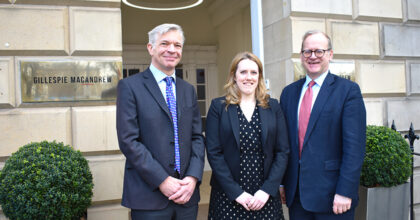Museums play a vital role in preserving our cultural heritage, showcasing art and artefacts, and providing educational experiences for the public. The Museum Accreditation Scheme serves as the recognised standard in the United Kingdom for such institutions. It encourages museums to conform to a predetermined set of criteria regarding their operations, collection management, and how they engage with visitors.
Acquiring accreditation is a significant milestone for museums in Scotland and brings with it numerous benefits. It serves as a mark of credibility and trust and demonstrates the museum has met rigorous professional standards**. Recognition helps to instil and build confidence in visitors, donors and stakeholders that the museum is committed to excellence in care of collections, engagements and governance. Many funding bodies and grant providers require this accreditation in order to secure financial support. With greater access to various funding opportunities and resources, museums can improve their collections and improve their facilities and accessibility. The accreditation process is in itself is a valuable learning experience for trustees and managers since those involved in running and managing museums are encouraged to assess and enhance their collection management, public engagement and governance.
Museums Galleries Scotland is the organisation responsible for the assessment of museums in Scotland. Before beginning the application process, museums should check their institution meets the eligibility criteria. There are six criteria focussed on venues functioning as collecting institutions, which are open to the public and adhere to professional standards. There are also several common elements typically expected to be in a museum’s constitution. These include:
- Open to the public. A museum’s constitution should indicate that it is open to the public or a specified target audience, demonstrating accessibility and public engagement.
- Professional standards. The institution must adhere to professional museum standards which may include specific collection management standards and conservation principles.
- Statement of purpose. Any constitution must have a clear statement setting out the institution’s purpose as a collecting institution responsible for acquiring, preserving and managing collections, artefacts and objects of cultural, historical or artistic significance.
- Not for profit status. The constitution must affirm that the organisation operates on a not-for-profit basis. Any income must be used to further the charitable objectives rather than for private gain. If a charity is wound up, any surplus assets must be transferred to another suitable organisation and not distributed to members for private gain.
- Governance structure. The duties and responsibilities of trustees or directors must be clearly set out in the governing document. It must also outline how any amendments or changes to the constitution will be handled.
Achieving accreditation signifies an organisation’s dedication to professionalism and preservation and promotion of rich heritage. If successful in their application, they must commit to continual adherence to professional standards, guidelines and practices.
If you are considering applying for accreditation and would like to discuss updating your organisation’s articles of association, please do get in touch.
**The Accreditation Standards were last updated and published in 2018. They are available here. The standards are subject to review and updates by The UK Museum Accreditation Scheme and anyone looking to apply should always check they are referring to the most up to date standards.






